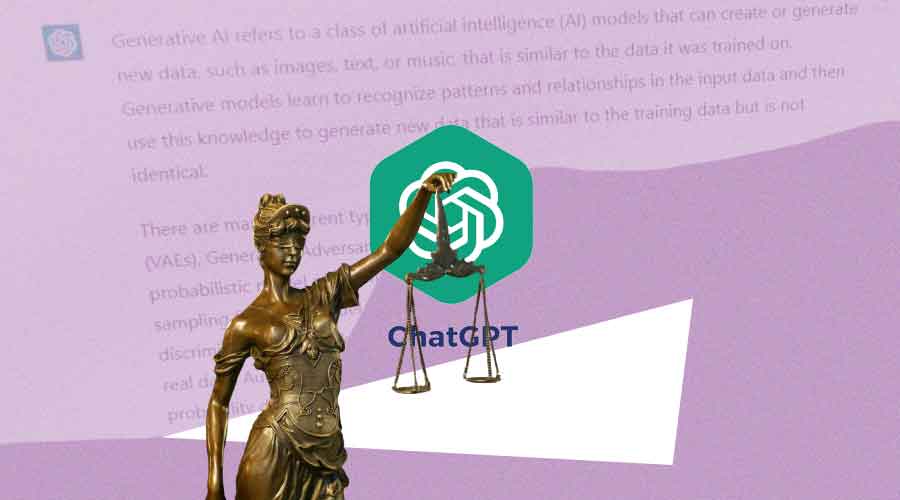
Nonfiction Authors Claim ChatGPT Stole Their Works in Lawsuit Against OpenAI and Microsoft
In the realm of artificial intelligence, the intersection of technology and ethics has always been a delicate balance. Recently, this delicate equilibrium has been disrupted as a group of nonfiction authors have taken legal action against OpenAI and Microsoft, alleging that their intellectual property was used without proper authorization in the training of ChatGPT, a powerful language model developed by OpenAI.
The Allegations: The lawsuit, filed by a consortium of nonfiction authors, claims that excerpts from their published works were incorporated into the training dataset for ChatGPT without explicit permission. The authors argue that this unauthorized use of their content raises concerns about intellectual property rights and the ethical implications of deploying AI models that are trained on copyrighted material without proper acknowledgment or compensation.
OpenAI’s Training Process: OpenAI, in its pursuit of creating state-of-the-art language models, employs a vast corpus of text from the internet to train its models, including ChatGPT. This corpus is a diverse collection of publicly available text that helps the model understand and generate human-like language. However, the nonfiction authors allege that their copyrighted works, which may not be freely available online, were also included in this dataset without proper consent.
The Ethical Quandary: The lawsuit highlights a growing ethical concern in the AI community regarding the use of copyrighted material in training models. While OpenAI and other organizations make efforts to anonymize and generalize data, the line between fair use and copyright infringement becomes blurred when specific, identifiable content is used without explicit permission.
OpenAI’s Response: OpenAI has acknowledged the receipt of the lawsuit and issued a statement emphasizing its commitment to addressing concerns related to intellectual property. The organization maintains that it takes the ethical use of AI seriously and is actively exploring ways to mitigate any unintended consequences of its training processes.
Microsoft’s Involvement: As a strategic partner in the development of ChatGPT, Microsoft is also implicated in the lawsuit. The authors argue that Microsoft, as a technology giant, should have been more vigilant in ensuring that the training data used for ChatGPT adhered to the highest standards of ethical conduct. Microsoft has yet to release an official statement on the matter.
The Impact on AI Development: This legal action raises questions not only about the specific case at hand but also about the broader implications for the development and deployment of AI models. As language models like ChatGPT become increasingly sophisticated and integral to various applications, the ethical considerations surrounding their training data gain prominence. Striking the right balance between innovation and respecting intellectual property rights is crucial for the responsible advancement of AI technology.
The Need for Clear Guidelines: The lawsuit underscores the urgency of establishing clear and standardized guidelines for the ethical use of training data in AI development. While AI organizations strive to create models that benefit society, a lack of well-defined protocols regarding the use of copyrighted material can lead to unintended legal disputes. This case may serve as a catalyst for the industry to collectively address these ethical challenges and establish best practices for the responsible development of AI.
Potential Ramifications: If the nonfiction authors’ claims are substantiated, the case could set a precedent for future legal actions against AI developers. It may prompt organizations to reassess their data acquisition and usage policies, with a heightened awareness of the potential legal consequences of using copyrighted material without proper authorization.



